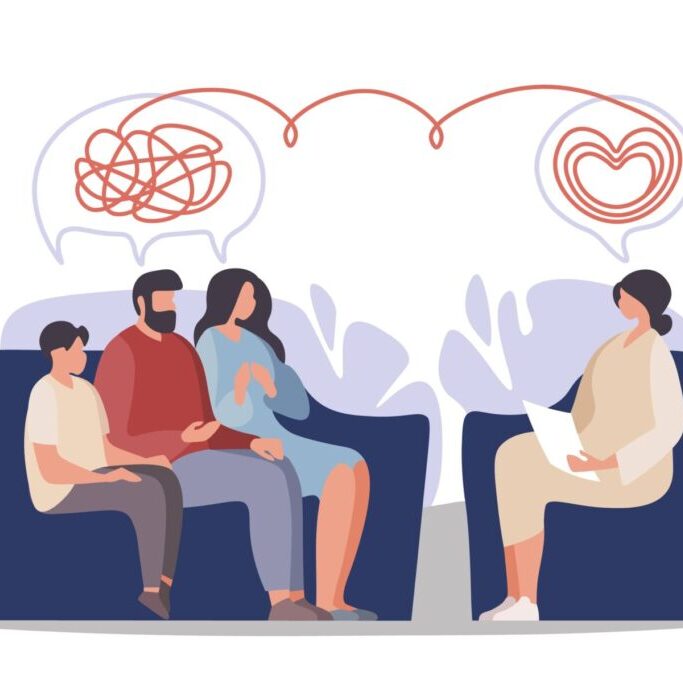10 Reasons LGBTQ People Need Therapy

So, what even is LGBTQ+ therapy? Of course, we are similar to our cisgender straight counterparts at our core. We often have similar goals that bring us to therapy: a need for belonging, healthy relationships, life satisfaction, and to fulfill our values. However, being LGBTQ+ often requires additional considerations and community support when moving through life transitions.
Trauma and potential ongoing stress associated with marginalization are crucial issues to address in LGBT therapy. Even when we are feeling resilient and at our best, it is still helpful to feel as though your therapist is considering your experiences and how they influence your therapeutic goals. Your LGBTQ identities may be a main focal point of therapy, or they may be less prominent, but still important to consider when approaching life’s challenges.
Below are ten solid reasons to pursue LGBT focused therapy
- Commitment to understanding your needs. Straight peers may not fully comprehend your lived experiences. On the other hand, LGBTQ peers may have had similar difficult experiences that may be emotionally taxing to process with you on a weekly basis. It can be helpful to have a confidential weekly hour to organize your thoughts, desires, and understanding of yourself in a nonjudgmental and affirming space. LGBTQ therapy can be a helpful resource in supporting clients to better accept themselves when their immediate environments may not be well equipped to do so.
- Robust self-esteem. Where are your messages about yourself and self-worth coming from? Are they authentic? Do you believe them or want to? Larger societal problems are historically scapegoated onto marginalized groups, including LGBTQ communities. LGBTQ therapy can provide an opportunity for individuals to unlearn harmful messages about themselves they may have internalized, and integrate healthier and more honest narratives about themselves. To cope with harmful stereotypes, many LGBTQ individuals often overcompensate and engage in strict perfectionism to gain acceptance. LGBT focused therapy can be a place for you to practice showing up as your imperfect, mistake-making self and practice self-acceptance on your terms.
- Pursuing romantic partnerships. Our romantic relationship dynamics and expectations can be different from our straight peers. For example, while not all queer people are poly and not all poly folks are queer, open relationships tend to be more common among the LGBTQ community. Conflict that arises in open or poly queer relationships can be better addressed with a therapist who is affirming of the foundations of your relationship. Other related issues that could be addressed in LGBT focused therapy include one or more partners not being out to family/friends, one or more partners transitioning, one partner being on the asexual spectrum, unique power dynamics that may arise from a queer relationship, or other difficulties living authentically in romantic LGBTQ+ partnerships.
- Family matters. Our needs around building our own family can be different as well. Surrogacy and adoption can both be tricky to navigate, and even more so if you belong to a historically marginalized group. LGBT therapy can assist clients in navigating these potentially stressful processes and support families in reaching their goals. An LGBTQ affirming therapist can provide a sounding board to plan your short-term and long-term goals for your children. What type of parent do you want to be? Which values are important to model around your children? What kind of expectations do you have for your family? What are considerations for your queer and/or trans identities in the context of building a family with children?
- Systemic issues can add up. LGBT therapy cannot solve these issues, but can help you manage. Queer and transphobia are still pervasive, and issues can add up over time. Being the queer family member who stops receiving holiday invites, the trans employee whose coworkers mock reasonable accommodations for trans folks in the workplace, or the bisexual whose straight and queer friends minimize their identity can take a mental toll if not adequately emotionally processed. Having at least one marginalized identity can take a psychological toll from society if you are not regularly checking in with yourself. You deserve time and space where you can plan how to advocate for yourself and live as authentically as possible in the world.
- Sex and intimacy. Many queer and/or trans individuals did not receive comprehensive (or even minimal) sexual education in their youth. Do you feel like you are adequately-equipped to make healthy sexual decisions and communicate them to partners? Are you aware of options in terms of HIV and STI prevention, or trans-affirming healthcare? Are you fully in touch with what feels satisfying and exciting intimacy-wise? If the goal of procreation is temporarily or permanently off the table, sex can become an exciting world of desire, connection, and affirmation.
- As a lens, rather than a problem. Having a therapist that is aware of the nuances of LGBTQ identities can make the therapeutic process more effective. LGBTQ therapy can be the main focus, or it can be a lens through which you address other mental health concerns not directly or apparently related to your identities. For example, your experience of grieving an in-law’s death, and supporting those in-laws, could be more complicated if you are in a queer poly relationship. You may have specific considerations around disclosing your trans identity if you are starting a new job. Life’s stressors can have unique considerations for LGBTQ+ individuals depending on their intersecting identities and challenges they may face as a result.
- Designing your life in LGBT focused therapy. Some of us are required to think critically about societal norms as a result of our identities, which can often lead to having less of a blue print in adulthood. What are your long-term goals and how do they intersect with societal expectations? How can you integrate your identities into a satisfying, values-based life? Major life decisions often involve sacrificing other values or dreams. LGBT therapy can assist clients in making sure they are not sacrificing core, meaningful parts of themselves.
- Gender Dysphoria. Although not all trans and gender nonconforming individuals experience gender dysphoria, or an ongoing dissatisfaction with one’s body based on gender and biological sex, many individuals find that this is a crucial part of their journey to navigate. Gender dysphoria, while often chronic, can improve with resources and further discussion around what gender affirmation or gender euphoria looks like for that specific individual. LGBT focused therapy can also connect trans and gender nonconforming individuals to other affirming forms of health care and support them through transition processes if that is their ultimate goal.
- The coming out process. You may want assistance and support in living authentically and coming out across contexts. While coming out is not a major goal for all LGBTQ individuals, it is often a relevant topic in LGBTQ therapy. Coming out is often not fixed in one particular moment in time, but rather a process depending on contexts and even changing identities. Coming out can sometimes, unfortunately, have negative consequences and should always be treated with deep consideration of a person’s environments. Your therapist will always respect your timeline and never out you to others, even if you have family members or your workplace tied to your healthcare or therapy.
Contact us today to schedule an appointment!
This blog is made for informational and educational purposes only. It is not medical advice.The information in this blog is not intended to (1) replace a one-on-one relationship with a qualified licensed health care provider, (2) create or establish a provider-patient relationship, or (3) create a duty for us to follow up with you.



